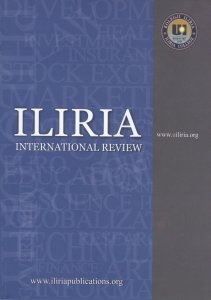Examining the Causal Relationship between Exchange Rates, Foreign Investments and Inflation Rate: The Case of Turkey using data from January 2008 to December 2018
Examining the Causal Relationship between Exchange Rates, Foreign Investments and Inflation Rate: The Case of Turkey using data from January 2008 to December 2018
Author(s): Kujtim Hameli, Yağmur RençberSubject(s): National Economy, International relations/trade, Economic development, Financial Markets
Published by: Kolegji ILIRIA and Felix-Verlag
Keywords: foreign investments; inflation rate; exchange rates, VAR; relationship;
Summary/Abstract: This study examines the relationships between exchange rates, foreign investments and inflation rate in Turkey using monthly data from 2008-2018. The vector autoregression (VAR) model is used to examine whether these three variables are correlated to each other. VAR results showed that Exchange Rates (ER) have a moderated impact on Foreign Investments (FI), where a percentage increase in Exchange Rates (ER) accounts for an increase of 27,58% on Foreign Investments (FI). Exchange Rates (ER) have a significant impact on Inflation Rates (IR), where a percentage increase in Exchange Rates (ER) is associated with an increase of 77,02% on Inflation Rate (IR). Pairwise Granger Causality test results’ showed that Inflation Rate (IR) does not cause Foreign Investments (FI) and Foreign Investments (FI) does not cause Inflation Rate (IR); Exchange Rate (ER) does not cause Foreign Investments but Foreign Investments (FI) cause Exchange Rate (ER); Exchange Rates (ER) does not cause Inflation Rate (IR) and Inflation Rate (IR) does not cause Exchange Rates (ER).The result of impulse function shows that Foreign Investments (FI) and Inflation Rate (IR) responded positively to Exchange Rates (ER) in earlier periods and negatively in late periods.
Journal: ILIRIA International Review
- Issue Year: 10/2020
- Issue No: 1
- Page Range: 135-158
- Page Count: 24
- Language: English

